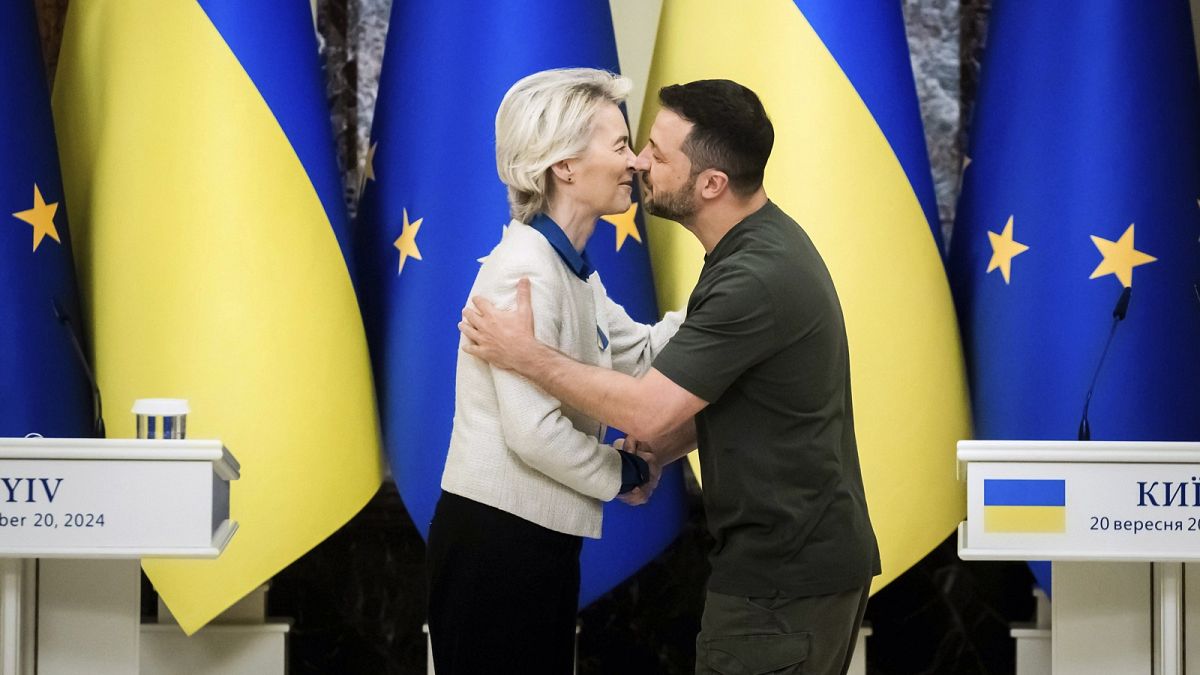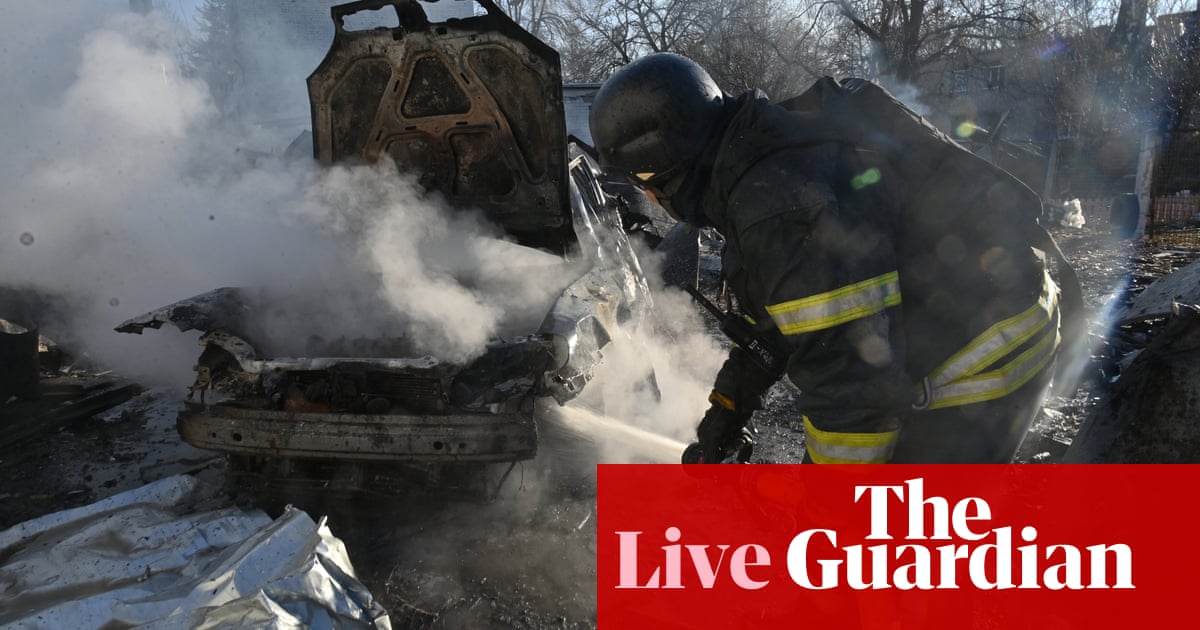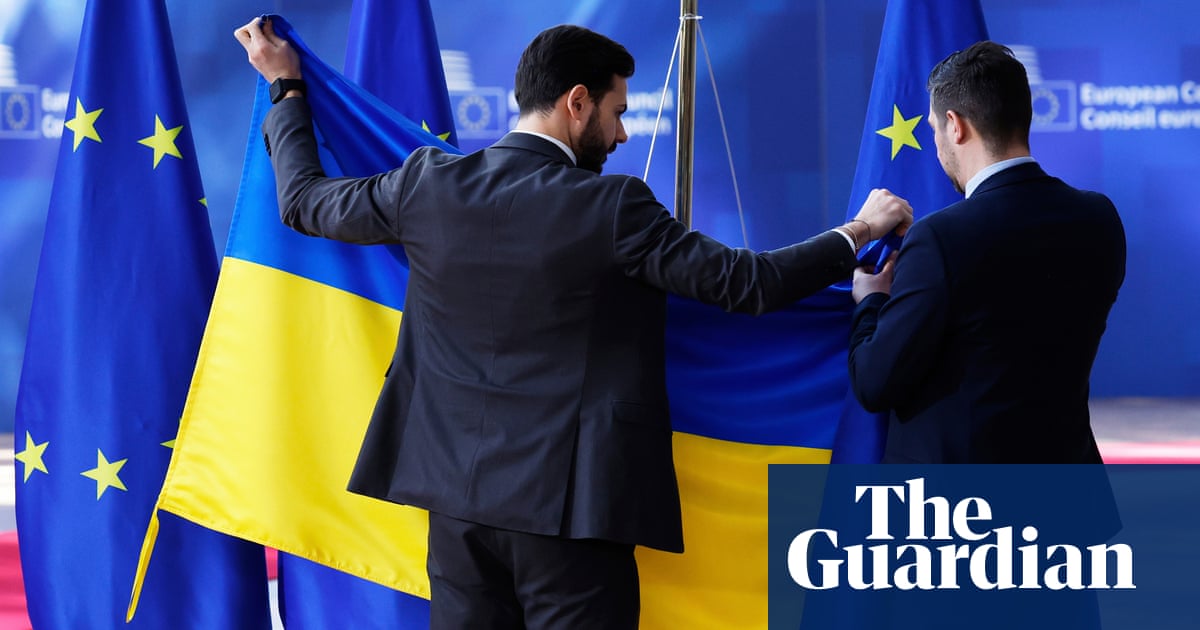EU to raise €35 billion loan for Ukraine using Russia’s frozen assets

Ursula von der Leyen has announced a multi-billion initiative to help Kyiv plug the hole in its state budget and procure more weapons.
The European Union will raise a €35 billion loan to support the Ukrainian economy and military as the war-torn country battles to resist a renewed Russian offensive that has badly damaged the power systems and made territorial advances in the East.
The loan was announced by Ursula von der Leyen on Friday during her visit to Kyiv, promising “maximum flexibility” in how the money will be spent.
“Russia keeps targeting your civilian energy infrastructure in a blatant and vicious way to try to plunge your country in the dark,” the European Commission president said in a press conference next to Volodymyr Zelenskyy.
“The European Union is here to help you in this challenge to keep the lights on, to keep your people warm as winter is just around the corner, and to keep your economy going as you fight for survival,” she added.
The pledge represents the EU’s share of the $50 billion plan (€45 billion) that G7 allies had promised in their June summit, using Russia’s immobilised assets as collateral.
The original idea was for the EU and the US to contribute $20 billion each, while Canada, the UK and Japan would commit the remaining funds.
But the G7 initiative has become bogged down in technical talks between EU and US officials, with no easy resolution in sight.
As the EU sanctions on the assets need to be renewed every six months by unanimity, the White House fears Hungary, the most Russia-friendly member state, could one day wield its veto, unfreeze the money and cause the entire loan to unravel, leaving Western allies to foot the bill of repayments with their national budgets.
Last week, the Commission presented member states with three options to ensure the long-term predictability of the sanctions, with renewal periods ranging from 36 months to five years. But a few days later, Hungary made clear it would not move forward with the scheme until the US presidential elections of 5 November.
The lack of consensus makes it hard for Brussels to give Washington the legal assurances it needs. Due to the financial risks associated with the operation, the US Congress will need to approve additional funding, something unlikely to happen.
With the situation in Ukraine turning increasingly dire and rising fears of a humanitarian crisis in the winter, the Commission is stepping things up and increasing its participation of up to €35 billion in a bid to allay the White House’s concerns.
On paper, this means the other G7 allies should put just €10 billion to reach the €45 billion ($50 billion) pledge announced in June. However, EU officials expect the other partners to exceed the amount and therefore be able to reduce the bloc’s announced share. Further clarity is expected by the end of October.
“We should make Russia pay for the destruction it caused,” von der Leyen said.
“We’re doing our share now with the €35 billion. I’m absolutely confident that others will do their share,” she added. “For us, it’s important that we’re fast, the urgency is clear.”
As most of Russia’s frozen assets (€210 billion) are in EU territory, the Commission will set up a special mechanism to channel the windfall profits, estimated to be worth €2.5 billion and €3 billion annually. Each G7 ally will then tap into this new pool to service repayments according to how much money they have raised for Ukraine.
Crucially, von der Leyen’s lending proposal rests on a qualified majority by member states, meaning Hungary’s veto will no longer be a threat. The European Parliament will also be involved in the process. The loan needs to be approved before the end of the year so it can be gradually disbursed throughout 2025.
In parallel, Brussels has proposed the sanctions on the assets be renewed every 36 months. This key change, which the US is pushing for, will be subject to unanimity. Still, EU officials insist that the €35 billion loan could go ahead even if Hungary derails the extension, as the ultimate guarantee remains the bloc’s common budget.
Ahead of her visit to Kyiv, von der Leyen announced a €160 million assistance package for Ukraine, with €100 million backed by Russia’s frozen assets to repair power plants and boost renewables, offering 2.5 Gigawatts of capacity.
Related
Zelenskyy reiterates call for air truce after huge Russian attack…
We need Russia to stop attacks, Zelenskyy says, backing calls for truce in air, at seaUkrainian president Volodymyr Zelenskyy has responded to overnight attacks
Europe scrambles to rearm as Trump threatens security guarantees and…
CNN — European leaders have vowed to rearm the continent at historic emergency talks h
Russia launches ‘massive’ attack on Ukraine after Europe rushes to…
Ukraine's energy and gas infrastructure came "under massive missile and drone shelling" by Russia on Friday, a Ukrainian minister said."The energy and gas infra
American severance may be averted, but Europe’s leaders must fear…
With a mixture of regret, laced with incredulity, European leaders gathered in Brussels to marshal their forces for a power struggle not with Russia, but with t












